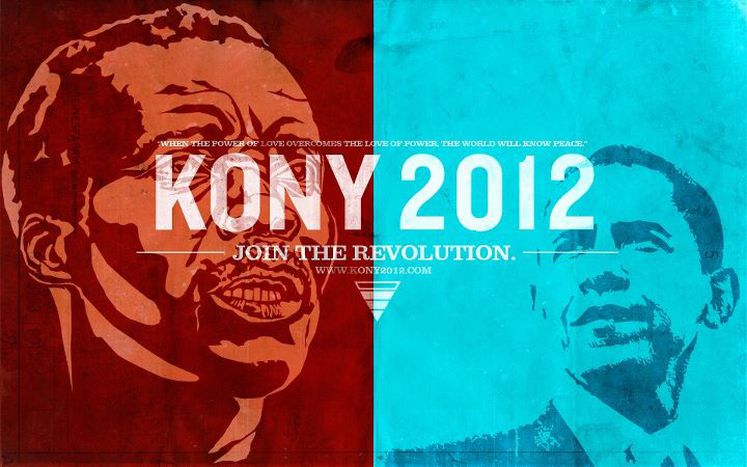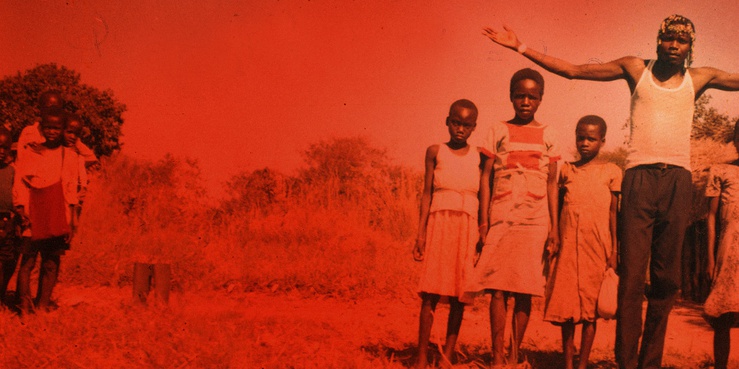
Kony 2012 facebook campaign: no, he’s not running against Obama
Published on
You probably went to sleep on Monday night with only the vaguest notion, if any, of who Joseph Kony is or where Uganda can be found on a map. You might have then awoken the next morning to find a video entitled Kony 2012 clogging up your facebook homepage. The video has been viewed over a phenomenal 21 million times in less than a week
No, Joseph Kony is not a late runner in the US presidential race. In the highly unlikely event that you haven’t viewed the video or you were too distracted by the flashy production values to pay close attention, it is an American campaign to stop Kony recruiting child ‘rebels’ in Uganda (follow the Equator across Africa, stop before you hit Kenya) by 31 December 2012. I spent three months working in Uganda in 2011. Two months prior to that I was panicking about going to the Central African nation, devouring every book I could find on the country. This is how I first became aware of Kony's rebel group called the lord’s resistance army (LRA) and their twenty-year history of kidnapping tens of thousands of children to use as soldiers and sex slaves.
America to the rescue
The video is pretty slick; Uganda doesn’t look that glossy in reality. It cleverly enlists a cute little blonde boy, the son of the director, to juxtapose with the suffering of Ugandan children. This is a relatively new technique in the non-profit world and is not without controversy; in 2010 a video entitled Unwatchable depicted a typical tale of rape and murder in Eastern Congo by transferring the horror to England. The technique raises unsettling moral questions; do we need to see beautiful and blonde people suffering before we can empathise with a situation?
Watching Kony 2012, you start to feel uncomfortable and slightly sordid by its inane simplification of the issue. Is its aim to make US college students feel good about their activism rather than address any real issues? The premise of the video is to raise awareness of Kony’s activities, 'make him famous', with the idea that a swell of public opinion will translate to political will and a US military intervention to apprehend Kony and deliver him to the international criminal court in The Hague, which issued an arrest warrant for Kony in 2005. It’s an idea that is confused and frankly bewildering to anyone who knows anything about the situation in Uganda.
Let us quell our innate European scepticism of American troops wading in to save the day and examine the facts. Firstly, the notion that western political will is the issue here is fundamentally flawed. Uganda has quite a capable military of its own; admittedly it’s rather corrupt and prone to committing human rights abuses, but if we’re talking only about capturing Kony, it has the capacity to do so. It has also had the opportunity to do so, numerous times over the past decade in fact. What is lacking is political will - that’s Ugandan political will.
Kony 2012 - do you really care?
Uganda is heavily involved in a number of united nations and African union peacekeeping missions, for which it receives remuneration. This has made it more profitable for a corrupt political regime like Uganda’s government to send its troops on regional missions than to deal with internal conflicts. Also, there is no meaningful national identity in Uganda; tribal and regional affiliations remain the predominant source of loyalties. Most Ugandans view the conflict in the Acholi-dominated north as none of their concern. Kony was pushed out of Uganda in 2006 by a major military operation. With a band of followers, thought to currently number a few hundred, he now drifts freely through the porous borders of South Sudan, the Democratic Republic of Congo and the Central African Republic. We do know that he has lost the majority of his influence, power and ability to kidnap children. This does not mean he shouldn’t be apprehended and made to face justice. The likelihood of Kony being apprehended at this stage is highly improbable.

Raising awareness is positive, but a campaign to focus efforts on rehabilitating the thousands of people affected by his brutal campaign is a better use of resources. Perhaps the issue lies not with the organisation behind it but with a generation that automatically clicks ‘like’ on a campaign without taking a little time to think about what they’re doing. We’ve never had more access to information (which is also the director's point). We should be taking advantage of this and thinking critically about issues, not blindly jumping on a social media bandwagon. Despite its flaws, this campaign has generated an unprecedented and commendable amount of debate and awareness about Uganda; for that it should be commended. We’re the ones who should be criticised for thinking ‘liking’ something equates with taking meaningful action. I went to Uganda as an intern, only half aware of the poverty, corruption, high levels of HIV, political instability, constant threat of terrorism, lack of infrastructure and industry and insanely high levels of sexual violence - to name a few of the problems - I would face.
Don’t just read these words, picture what they mean- unpaved roads, overflowing sewerage drains, girls raped, police beating thieves with chains on the street, tanks ‘parked’ on roundabouts (just in case). We can’t help to solve Uganda’s problems by simplifying the situation to suit our short attention spans. Only by acknowledging the harsh reality can we deal with the real issue.
Images: main, Kony may sound like an opponent of Obama's, and he is - but not in domestic politics (cc) Philip Hourican for Invisible Children/ facebook page; in-text image of Ugandan children courtesy of (cc) Invisible Children official page



